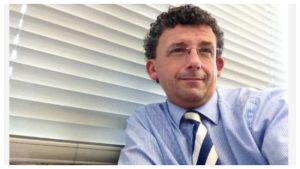Year 9 Future Ready Programme Launches
In February, five Aspirations Academies were involved in the Year 9 Future Ready Programme, delivered by Speakers...
Read more Year 9 Future Ready Programme LaunchesThe Aspirations Employability Diploma trains students at Aspirations Academies in competencies such as problem solving and cross-cultural awareness.
“I’ve always been unsure about the term ‘soft skills’. Labelling vital competencies like problem solving, agility and cross-cultural awareness as ‘soft’ undermines their importance. Instead, I call them ‘power skills’, since they are transferable to any job. As Director of Employer Partnerships at Aspirations Academies Trust, I’m dedicated to developing these types of skills in young people.
Aspirations Academies takes various approaches to real world learning. A key one is our post-16 Aspirations Employability Diploma (AED). This is unique to Aspirations and while I have come across careers programmes at other MATs, I am not aware of any having anything like the AED.
The AED is compulsory, aimed at years 12 and 13 and requires four hours of weekly study alongside traditional subjects.
Our AED roadmap broadly outlines the skills students will develop, exploring where they’re heading, what their goals are, and what traits they will cultivate. Unlike many qualifications, though, the diploma is built on real world activities. Students undertake four employer projects, three of which offer windows into the largest employment sectors: engineering, health and medicine, and education and training. The final ‘showcase’ project encourages students to explore a topic of their choice.
None of this could be possible without our employer partners. Even the assessment is carried out by an external Employer Advisory Board, rather than teachers.
Students submit a personal statement of their achievements alongside a portfolio of supporting evidence. They must then defend this in a viva-style interview with two employers, who will decide if they demonstrate the basic professional skills needed for an entry-level role.
Students can receive Bronze, Silver or Gold awards, with the possibility of Platinum for those who progress in year 13. They can also fail, of course. Naturally, this is not something we want to see. But it’s important that the diploma has high stakes.

Marcel Cianter, Director of Employer Partnerships at Aspirations Academies Trust
In year 13, students can also compete for a place on our Aspirations Scholarship Scheme. This is a top-quality, well-paid, four-week work placement in their chosen sector. I’m particularly proud of this aspect of the programme, which helps students get their foot in the door and put their skills into practice. It also builds the AED’s currency with employers, giving them an opportunity to scout talent and build rapport with potential future employees.
Designing and delivering the diploma has been a huge undertaking over many years, driven by our visionary co-founders Steve and Paula Kenning.
While the Trust still offers mainstream education, the AED complements this with a preparatory diploma that provides young people with the technical training and professional skills they need, whatever they go on to do in life. And that’s something we should be immensely proud of.
This sounds like a big claim but consider this. A few years ago, one of our students failed her A-levels. She nevertheless managed to scrape through to a university interview. Based on the strengths and competencies she’d developed through her Aspirations Employability Diploma – including her ability to communicate – she was accepted to the university. She subsequently graduated with first class honours and is now the chair of our Alumni Advisory Board.
To me, this defines everything the Trust is trying to achieve. The AED formalises the broad professional skills that young people need and employers are asking for. Partnering with organisations like Edge Future Learning, I see a bright future ahead as we help others to embrace the power of real-world learning.”
In February, five Aspirations Academies were involved in the Year 9 Future Ready Programme, delivered by Speakers...
Read more Year 9 Future Ready Programme LaunchesThe first Aspirations Employability Diploma final of 2025 marked a significant milestone in the academic year, bringing...
Read more AAT Celebrates First Aspirations Employability Diploma Final of 2025The Diversity and Inclusion in STEM report acknowledges the lifelong benefits of STEM-related skills. It notes that opportunities...
Read more Dr Jeffery Quaye OBE: The next government must shift our anti-maths culture